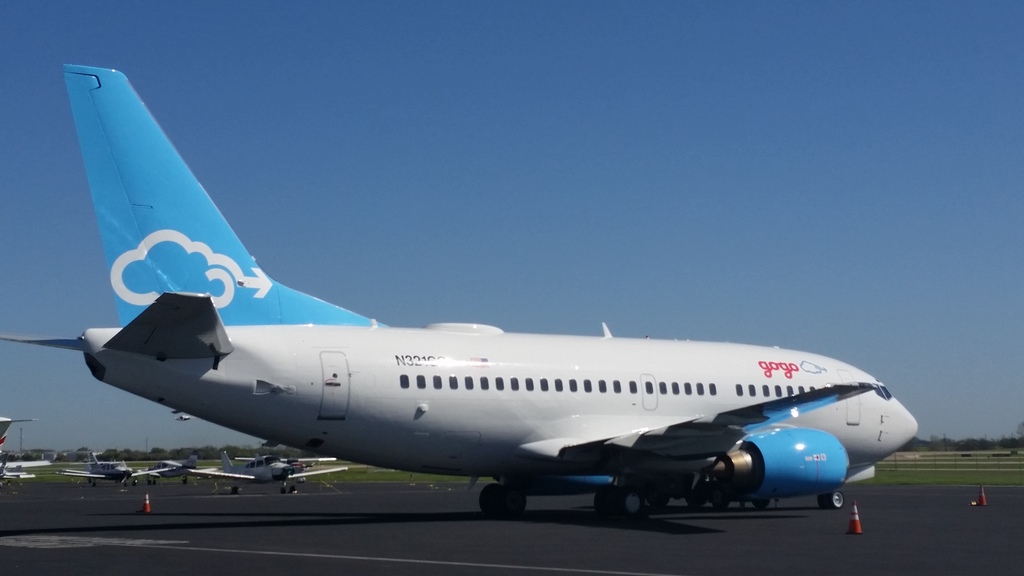When I started predicting seven years ago that inflight wifi would be free within 10 years (so by 2022), people thought I was crazy.
However since that time JetBlue introduced free inflight internet and Aer Lingus has announced usage-capped free wifi. Southwest, Delta and Alaska now offer free inflight messaging. Delta CEO Ed Bastian says they’ll do it in a year or two so by 2021.

Another airline has just launched free wifi: Air New Zealand. (HT: Australian Business Traveller)
Internet at Air New Zealand is brand new over the past year and a half or so. New Airbus A320neos and A321neos are being delivered with internet, and they’ve been converting Boeing 777s to offer it. They say they’ll start adding it to Boeing 787s “later in 2019.”
The airline offered free wifi as a test December 1 – February 28. Now this spells the end of charges of as much as $40 for a long haul flight to stay connected.
Hotels stopped charging for wifi several years ago (in some cases, as long as you book your room through the chain or a corporate agency and perhaps join their loyalty program). The same economics should overtake airlines.
The President of American Airlines says his airline won’t lead the way with free wifi. He says “we will be charging for wifi” though of course that could change if they’re forced to give it away by a competitor like Delta doing so (“we’ll be conscious of the marketplace and make sure we do the right thing”).
His argument is that “satellite wifi service, it’s not cheap.” It “would be an expenditure of hundreds of millions of dollars” but the argument I’ve been laying out for years is that he’s misunderstanding bundling services where the marginal cost of providing something to an additional passenger is zero or near-zero.
- When bandwidth was extremely limited, inflight wifi was a scarce resource to be rationed
- But with high speed satellite internet bandwidth is no longer a constraint
- Different people value having internet access differently. So it makes sense to bundle together with other items, the way cable companies sell baskets of channels.
Here’s a simple example.
John values Disney at $100 a year and FoxNews at $10 a year; Sally has the reverse valuations. Without bundling, the cable company will offer each channel for about $99, and sell a channel to each consumer, reaping $198 in revenue (N.B.: I am assuming that the cable company has a good idea of demand in general, although it cannot identify which consumer is willing to pay how much for what.)
In lieu of this set up, sell the bundle for $109 to each consumer, reaping a greater revenue of $218. The company makes greater profit.
More importantly, aggregate welfare is higher. In this case each consumer receives two channels instead of one.
Offering inflight internet without extra charge is not something that costs hundreds of millions to give away free, it’s something that you make more money selling as part of a bundle, in this case bundled with the airline ticket. More and more airlines are starting to realize this.
US Airways management was one of the last in North America to decide to introduce inflight internet. They stayed away from it because they didn’t think they would make money selling the service. They were right. But what they missed is that they started losing ticket sales because they didn’t have internet to offer. When they saw those losses, they acted.
Going forward business travelers especially will see inflight internet as a basic need. Airlines that sell it separately will essentially be more expensive than competitors for a given trip where fares are the same. That’s not a great position to be in.


“Offering inflight internet without extra charge is not something that costs hundreds of millions to give away free, it’s something that you make more money selling as part of a bundle, in this case bundled with the airline ticket. More and more airlines are starting to realize this.”
That sounds like marketing gobbledegook. It undoubtedly more profitable to charge for the wifi. Just like it’s more profitable to charge for in-flight meals instead of giving them away. That said, competitive pressures and social norms sometimes force businesses to give away things they’d prefer to monetize. Wifi seems like it could be one of those things in the future. But it’s delusional to think the airlines will make more money if they all give it away.
@Chopsticks —> Let me preface this by saying I’m no economist, but what you’re overlooking is the next paragraph: “US Airways management was one of the last in North America to decide to introduce inflight internet. They stayed away from it because they didn’t think they would make money selling the service. THEY WERE RIGHT. But what they missed is that they started losing ticket sales because they didn’t have internet to offer. When they saw those losses, they acted.” (EMPHASIS added.)
It’s not that free wifi, in and of itself, is profitable. It’s the lack of free internet on Airline A that causes pax to fly on other carriers, the result being a loss of revenue and profit for Airline A. And in that, I agree…
Another reason why I prefer flying Air New Zealand over UA to Australia.
Free the Gogo means retro-Hayes Modem experiences in the air
Oh God Doug Parker. Can someone give him access to a good feed of current events in marketing?